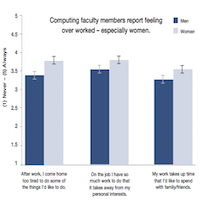Visions 2025 Initiative
The Visions 2025 initiative is intended to inspire the computing community to envision future trends and opportunities in computing research. Where is the computing field going over the next 10-15 years? What are potential opportunities, disruptive trends, and blind spots? Are there new questions and directions that deserve greater attention by the research community and new investments in computing research?









